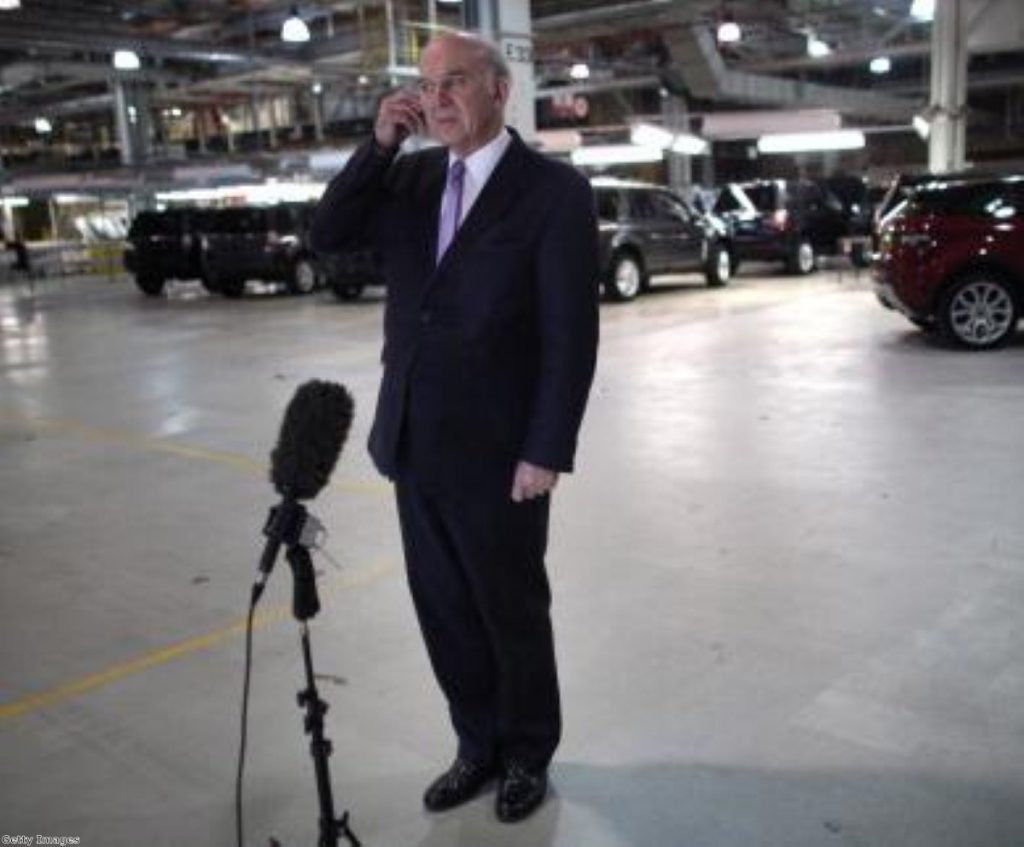Cable breaks cover to reject coalition’s Plan A
Vince Cable has publicly called for the coalition to abandon one of its fundamental deficit reduction targets, putting the Cabinet's unity on deficit reduction into disarray.
The business secretary's essay for the New Statesman newspaper has finally brought his disquiet with his government's economic strategy into the open. It overshadows the unyielding speech on the economy David Cameron will make in West Yorkshire later and contributes to the public lobbying debate pressing the chancellor ahead of the Budget on March 20th.
Cable suggests the coalition could afford to borrow much more to finance capital spending – even at the expense of the government's secondary objective of lowering the government-debt-to-GDP ratio.
He accepts in the 3,800-word Keynesian tract the final decision is a "matter of judgement", revealing his enthusiasm for more flexibility than the rigid programme of spending cuts laid out by the Treasury.


Borrowing more to pay for the building of more schools and colleges, council housing and small road and rail projects could help boost the economy, Cable said.
"Such a strategy does not undermine the central objective of reducing the structural deficit, and may assist it by reviving growth," he wrote.
"It may complicate the secondary objective of reducing government debt relative to GDP because it entails more state borrowing; but in a weak economy, more public investment increases the numerator and the denominator."
Cable's article clashes with the prime minister's speech, in which Cameron paves the way for George Osborne's Budget by underlining the importance of "holding firm to the path we have set".
"Be in no doubt," Cameron is expected to say later.
"The decisions we make now will set the course of our economic future for years to come.
"And while some would falter and plunge us back into the abyss, we will stick to the course."
The opposition seized on Cable's article as evidence that the business secretary was beginning to "see sense" in rejecting the government's approach.
Shadow Treasury minister Chris Leslie said: “Now is the right time to bring forward infrastructure investment and build thousands more affordable homes.
"It would kickstart our flatlining economy, create jobs and in the long-term strengthen our economy and help get the deficit down."
He attacked the business secretary for having backed "deep cuts" to capital spending and added: "His words today read like they have been written by a Secretary of State who despite being in office, is not in power."
Cable and his advisers are downplaying the row his article has created by pointing out the government has been happy to deploy Keynesian techniques wherever feasible.
He added: "The question throughout has been how to maintain the confidence of creditors when the government is having to borrow at historically exceptional levels, without killing confidence in the economy in so doing through too harsh an approach."

